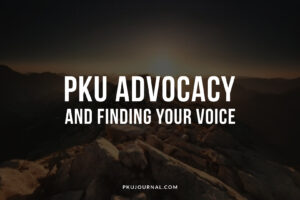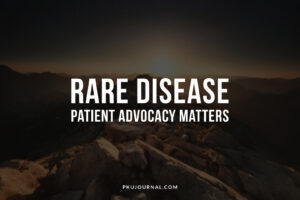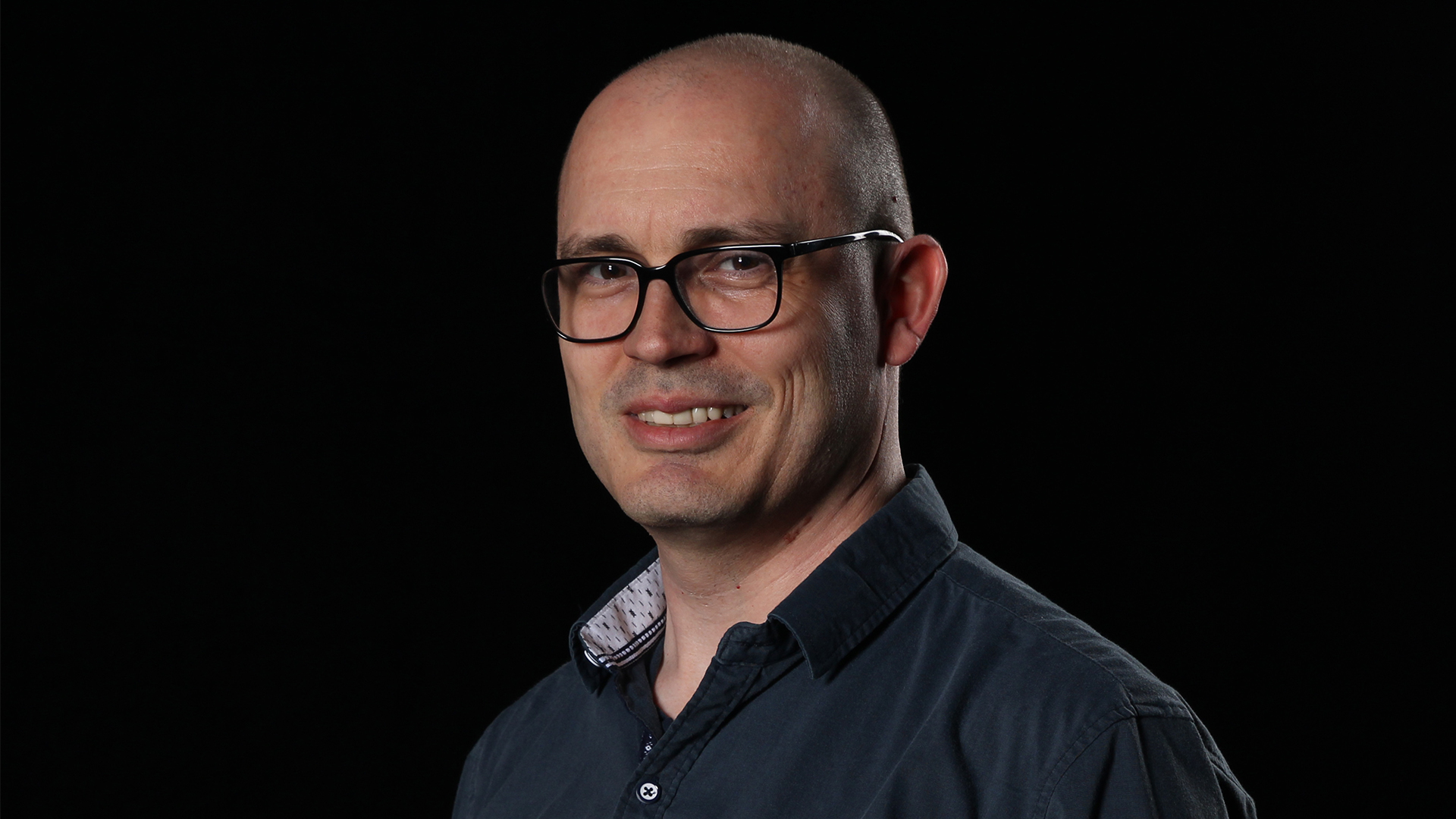Explore hope amidst dark circumstances with this episode as we delve into a journey of advocacy and personal past experiences, highlighting that even when we feel stuck, life moves on.
Light and Shadow.
Joy and Pain.
That’s how I often describe the range of moods or tones of this podcast.
This episode explores a bit of both. It’s about a moment when past attitudes and behaviors from life in the field covering the news collided with my life in advocacy.
I shared some of my experiences from working in broadcast journalism in season one. The first episode is called “Regaining Hope: My Journey to Rare Disease Advocacy”, and is the foundation of this show. I shared how covering crimes, accidents, and natural disasters affected me personally, but also inspired my journey into PKU, newborn screening, and rare disease advocacy.
I began with that story for one reason—this entire show is an exploration of hope.
Hope during the darkest of circumstances.
Relentless hope.
When discussing this, it would be easy to write and speak in cliches. And that’s not something I wanted to do.
I share experiences from my life so that you will know—and I believe this with all my heart—that there is always a reason for hope. And even on the dark days when I don’t act like I believe it, writing and speaking about all of this helps me remember.
Some of my episodes are directly related to rare disease life, like the one last week where I shared the story of Mary and Sheila Jones. Others, like this one, aren’t. They are reflections on life from stories I’ve either personally experienced, witnessed firsthand, or sometimes, other stories that inspire me.
This one… it’s one of my personal experiences. It was early in my advocacy journey, and I was out of the country… giving a speech about PKU at a newborn screening symposium. It should have been a time of pure joy. And for the most part, it was.
But something happened on the trip and, in my mind, I was transported back into my past. And I was afraid. Genuinely afraid.
Because of past experiences—traumas I’ve shared with you and others I haven’t—there are times when my fight or flight response kicks in. When I perceive danger, whether physical or emotional. Real, or imagined.
I often find myself stuck in moments like that… ruminating about a situation that I can’t seem to reconcile in my mind.
Reflection is important. Essential. And this is a reflection on something that happened early in my advocacy journey. But it’s also a reminder that even when you feel stuck…
Life moves on.
Mental Health Awareness Month
Before I continue with the story, I want to take a moment and share something with you. May is Mental Health Awareness Month. Initiated by the organization Mental Health America in 1949, this is an important time to reflect…
46 percent of Americans will meet the criteria for a diagnosable mental health condition in their lifetime.
But whether one experiences anxiety, depression, substance abuse, post-traumatic stress disorder, or any other treatable condition, there is help.
First, if you or someone you know is in crisis, there’s 988 – the suicide and crisis lifeline. And this is a particular issue among teenagers. Here are some statistics I read while working on a recent project…
- 20 percent of high school students have serious thoughts of suicide.
- 8.9 percent have made a serious attempt.
- And suicide is now the third leading cause of death for ages 15-24.
There’s a video I produced last year that I’ll share with you. It’s a real, raw story of one family’s struggle. And it’s dedicated to a girl who is no longer with us. Her name is Kerrington, and I hope her story helps you in some way.
There’s something I always say about rare disease life: “You are not alone.” And I say that because of the mental health burden of living with a rare disease.
But mental health is a universal struggle. It can affect anyone. And in those moments when I feel isolated, I’ve found that the one thing I can hold on to that gives me hope… is to repeat this to myself…
“You are not alone.”
Life Moves On
Situational awareness. It’s something you learn in the field.
Standing at a crime scene in the middle of the night… you tend to be on edge. Maybe you’re in a neighborhood, and people aren’t happy you’re there.
I always joke that you haven’t lived until you’ve been mocked or threatened at a crime scene, and you can’t tell where it’s coming from… because you can barely see. A crime scene isn’t always like you see it on network TV dramas, brightly lit up so that you can see everyone.
Sometimes the only light available is from emergency lights on an ambulance, fire truck, or police car. Or maybe just the light on your TV camera.
So, you learn to be hyper-sensitive and aware of your surroundings. There have been cases of journalists being shot after a suspect returned to a crime scene. One happened about a year ago in Florida. One TV photojournalist was injured. A reporter was killed.
So, I was constantly alert in the field. I had to learn to read people instantly: “Do they just want info from the TV guy, or are they a threat?” If I’m honest, that hyper-vigilance follows me today in situations it shouldn’t.
I’m still scanning for threats. Constantly.
Yes, I’m the guy who, on a bad day, will sit where I can see the entire restaurant. Who’s jumpy when a car backfires.
Or… misreads a social situation, and perceives a threat that may not exist.
I’m a work in progress.
But on December 12, 2012 I sat in my hotel room in downtown Sao Paulo, Brazil, editing a video I had filmed the day before. I was completely relaxed, my guard down, and still excited from a speech I had given the day before at a newborn screening symposium.
It was my second international advocacy trip. And I still couldn’t believe that my dreams were coming true. I was combining my career in storytelling with my new passion for PKU, newborn screening, and rare disease advocacy.
I was in the present moment. Enjoying life.
Until… I heard sustained automatic gunfire just a few blocks away.
The events described in this story took place the day after I gave this speech in Curitiba, Brazil. The audio is highly compressed, but this is one of the earliest speeches I gave in my advocacy journey.
A Flood of Memories
I wasn’t in immediate danger. I could tell that the gunfire wasn’t right next to the hotel. The sound was bouncing off the skyscrapers in this downtown district of Sao Paulo.
But being overseas by yourself, and hearing sustained gunfire? It’s not pleasant.
Immediately, I was on alert—no longer relaxing on this Wednesday morning, just casually awaiting my flight. I had plans to get out that morning and find some breakfast. Maybe visit a nearby Starbucks. Or go for a walk and explore.
I don’t always have an opportunity to do that on my advocacy trips. Sometimes, they are quick, like this one. The plan was to fly in on Monday, speak on Tuesday, and fly home on Wednesday. Sometimes while on a trip I’m in town for less than 24 hours. So I don’t have much time for sightseeing.
When the gunfire erupted, I stopped editing the video and sat in silence. It lasted a few minutes. Five? Maybe ten? Time is hard to perceive accurately in moments like that. And memory… tricks us.
The gunfire stopped. Finally, silence. Then, sirens.
I’m writing this on Superbowl Sunday, 2024. While much of the country is watching the San Francisco 49ers and the Kansas City Chiefs play in Las Vegas… I’m remembering this.
I didn’t plan to. But I’ve learned that when the memories come, grab my fountain pen and Moleskin journal.
Because, after being locked away for so long… now, the memories flow.
Turning to my Journal
My process for writing these stories varies from episode to episode. Sometimes I know exactly what I want to say.
In others, I’m exploring a memory, trying to make sense of it.
Because what I remember most from this trip isn’t the gunfire. It’s my experience from the newborn screening symposium.
Maybe that’s my mind’s way of blocking out painful memories, or in this case, something that was just a little bit disturbing. Again, I was never in direct danger. But it certainly was a reminder of previous experiences where I realized… there is another side to life than the one many of us encounter on a daily basis.
That one person’s moment of celebration can be someone else’s day of mourning.
Memory is deceiving. Sometimes things happen to you, and you completely block them out. Or, you remember something one way only to discover later… that’s not how it happened. That’s why my journals are helpful.
A few minutes ago I put down my pen and journal, grabbed a stepstool, and searched through the dust-covered stacks of old memories. I counted. 78 journals. I couldn’t remember if I had one with me in Sao Paulo, but I found it.
My first entry on December 12, 2012:
“For the last few minutes, I have heard repeated, loud booms. It sounds like gunshots reverberating in the distance. I also heard…
OK, it is definitely gunshots. I’m hearing them right now.
I’m staying inside as much as I can today.”
My Past Creeps Up
Like I said, I was there for a newborn screening symposium, to screen my film “My PKU Life”. And I was very excited about that because my hosts had translated the subtitles into Portuguese.
I met professionals in the Brazilian newborn screening community. I met families affected by PKU. I even met one PKU mom for coffee. We were connected on Facebook, and it was my first experience of meeting an international friend in the PKU community.
But after hearing those gunshots, memories of all those crime scenes resurfaced.
And—I didn’t even make this connection until this moment, while writing this episode—maybe, just maybe… it unnerved me because of the one night I was truly terrified of being shot when I arrived at a crime scene before the police.
Slowly, day by day, I was achieving my dreams. But often, our past creeps up on us. And we struggle to reconcile our two realities.
Are we truly believing in hope? Or… are we forever haunted by memories that we can’t seem to shake? We can be doing great. And then something snaps us back to our past.
After the gunfire stopped, I looked out onto the street.
Traffic flowed. Pedestrians strode by.
Life moved on.
And so did I.
Memory Eludes Us
7:44 AM. The next day. I was back in the US, sitting in the Atlanta airport. I had forgotten this part of the story. Again, journals come in handy.
At this time, I occasionally wrote for the Global Genes blog. They had asked me for an article about this trip.
I certainly didn’t lead with, “So, I heard sustained automatic gunfire for a while!”
I didn’t mention it at all, of course.
But this experience was certainly on my mind. I explored my motivation for advocacy and referenced my past life in TV news. Here’s part of what I wrote, at least in my Moleskin journal:
“It’s hard to describe how it feels to be on the scene of such a tragedy and feel completely out of control of the situation. It changed me. I started to feel like meaning and purpose were elusive, perhaps discovered by others but not by me given all I had seen and covered. I felt like one person couldn’t make a difference. Like I couldn’t make a difference.
But that changed in an instant last year. When I produced my film I did not anticipate the response it would receive. Through it all I’ve learned something… one person can make a difference.”
I can’t believe I found this in my journal. I have no memory of it.
When I began this podcast I thought I was exploring new territory… memories and experiences I had never associated with advocacy. Apparently, I was exploring all of this from the beginning.
Meaning and purpose are not elusive after all. It turns out they were part of my quest all along.
I was trying to reconcile these experiences and reminders of life in the field… and my advocacy journey from the very beginning. To make sense of the near-simultaneous presence of light and shadow, joy and pain.
It’s memory that tricks us. And it’s memory that eludes us.
We take our temporary excursions into our past, and that’s necessary from time to time. But stay too long and those memories take over.
They convince you of things that aren’t true, or they minimize the severity of experiences that were, in fact, upsetting. Or even traumatizing.
And you remain there. Stuck.
Reflection is important. Meditation, healing.
But eventually, you have to open the windows again and look outside…
Life moves on.
And so am I.
Hope Sustains Us
The speech that I gave on that trip… it wasn’t in Sao Paulo. It was in Curitiba. I had flown in to Sao Paulo on Monday, flew to Curitiba and back with my hosts on Tuesday, and returned to the US on Wednesday.
At the end of that article I wrote for Global Genes—at least in the first draft in my journal—I described our return flight from Curitiba to Sao Paulo:
“The sun was just beginning to set when we took off. It was the most beautiful, sublime ending to a day I will never forget. I was reminded, yet again, that one person can make a difference. But you’ll never know if you don’t try. You’ll never make an impact on this world if you don’t just step out and do something.”
Hope was slowly returning to my life.
On that flight, I looked out the window at that sunset and snapped a photo. If you follow me on social media, you’ve seen it.
I use it frequently as a background for some of my graphics—quotes from this show.
We’re flying just below the clouds, where the Atlantic Ocean meets the coastline, misty mountains on the horizon. It was a perfect moment. A pure golden sunset.
I love that photo. It used to be my cover photo on Facebook. It’s on my website, the featured image of my original article “Regaining Hope: My Journey to Rare Disease Advocacy”. It’s the wallpaper on my iPhone.
If an image can define my view of the world, this is it.
Some people think of dawn as the defining image of hope. But I prefer sunset.
It’s a reminder of impending darkness—a reality in life. But hope sustains us through that darkness. We know that morning will come, that shadow will give way to light, that joy will replace pain.
We know these things, as surely as we know ourselves. We just have to remember, and when hope seems lost…
Never, never, never give up.











Leave a Reply